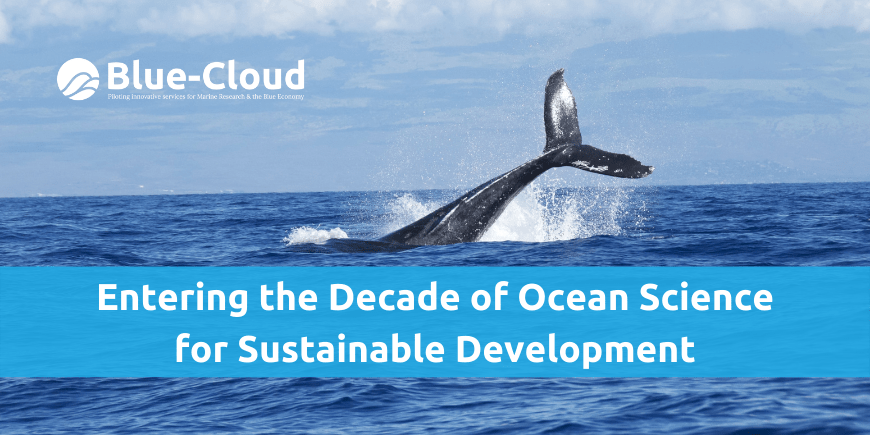"The science we need for the ocean we want!"
January 2021 marks the official start of the anticipated Decade of Ocean Science for Sustainable Development, launched by the United Nations in order to encourage decision makers to invest in ocean science and find innovative solutions for tackling major global challenges such as climate change.
The United Nations General Assembly has endorsed seven outcomes for the Decade of Ocean Science for Sustainable Development leading to 2030:
- A clean ocean where sources of pollution are identified and reduced or removed.
- A healthy and resilient ocean where marine ecosystems are understood, protected, restored and managed.
- A productive ocean supporting sustainable food supply and a sustainable ocean economy.
- A predicted ocean where society understands and can respond to changing ocean conditions.
- A safe ocean where life and livelihoods are protected from ocean-related hazards.
- An accessible ocean with open and equitable access to data, information and technology and innovation.
- An inspiring and engaging ocean where society understands and values the ocean in relation to human wellbeing and sustainable development.
Interested parties were also asked to submit their requests for endorsement by 15 January 2021 via the official website.
Blue-Cloud and the Ocean Decade
As part of the "Future of Seas and Oceans Flagship Initiative", Blue-Cloud responds to the reinvigorated effort by the European Commission towards working on a practical approach to understand the potential that cloud-based open science offers to marine research. Based on previous experiences, such as BlueBridge, our project is developing a pilot cyber platform to collect and elaborate multidisciplinary data and provide analytical instruments as well as computing facilities.
As highlighted by the Global Ocean Science Report 2020, published by the Intergovernmental Ocean Commission (IOC-UNESCO) just a few weeks before the official launch of the Ocean Decade, a new approach to ocean science is needed. Bringing together data from existing and new sources will open up opportunities to apply artificial intelligence approaches, such as machine learning, resulting in new insights into all fields of marine research.
These innovative methods will provide the basis for interdisciplinary collaboration to enhance access to relevant data, as well as for producing information and knowledge which will benefit decision making on a range of interconnected sectors, including the blue economy.
The five Blue-Cloud real-life demonstrators addressing different areas of ocean science are expected to showcase significant benefits for researchers, as well as for decision makers and society at large, perfectly fitting in the context of specific Sustainable Development Goals (SDGs) promoted by the UN, such as 2 - Zero Hunger, 13 - Climate Action and 14 - Life Below Water.
- Zoo & Phytoplankton Essential Ocean Variables Products
- Plankton Genomics
- Marine Environmental Indicators
- Fish, a matter of scales
- Aquaculture Monitor
The Blue-Cloud consortium is also working on a Roadmap to 2030, which will consider technical developments, user demand and needs, market analysis and opportunities for exploitation of Blue-Cloud resources, while providing options that ensure sustainability of Blue-Cloud services and interoperability with the European Open Science Cloud (EOSC) ecosystem as well.
Of course, this Roadmap does not exist in a vacuum, and it is taking into account key initiatives and frameworks such as the Decade of Ocean Science, moving towards common goals and cooperating where possible. The first round of public consultations on our Roadmap concluded in late 2020 and its results will be integrated in the first draft B-C Roadmap to 2030, which is planned for release in early Spring 2021 for wider stakeholder consultation throughout the summer.
Discover the Blue-Cloud demonstrators
Sign up for the Blue-Cloud newsletter
